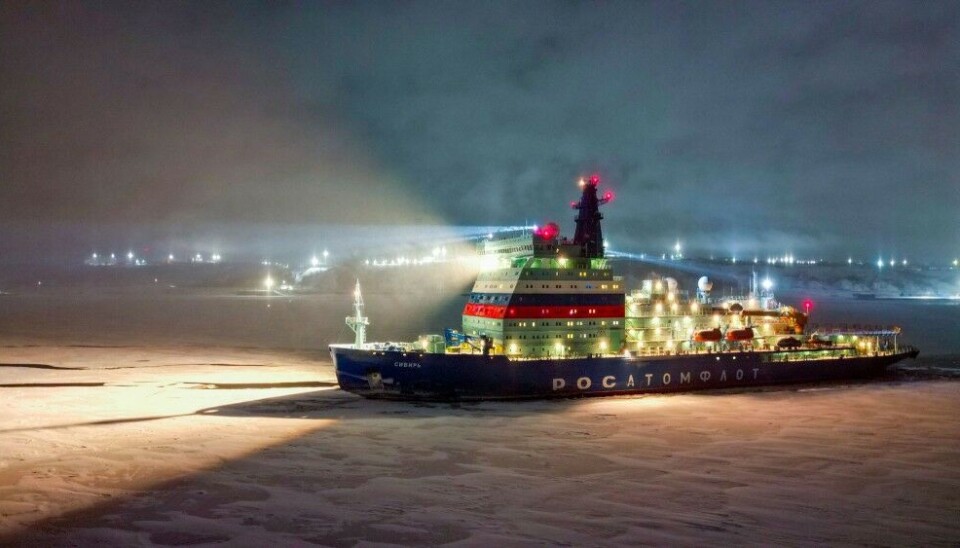
In chilly return to past, Putin names new icebreaker "Stalingrad"
The state leader reportedly approves a proposal to name the super-powerful Arctic vessel after the Communist dictator and mass-murderer.
The projected nuclear-powered icebreaker was originally to be named Kamchatka. But the Kremlin now appears to have intervened and renamed the powerful ship Stalingrad.
According to government-controlled newspaper Rossiiskaya Gazeta, the name change comes after a proposal from Governor of Volgograd region Andrei Bochkarev.
Putin has approved the idea and the icebreaker will carry the name Stalingrad, Bochkarev told the newspaper. “The initiative is important for the preservation of the memory of the bravery of protectors of Stalingrad during the Great Patriotic War, he underlined.
The city of Volgograd was called Stalingrad until year 1961. It was site of one of the most bloody and cruel battles during the whole Second World War. Up to 1,9 million people are believed to have been killed in the battles that raged between August 1942 and February 1943. It is considered a turning point in the war that ultimately led to the fall of Hitler’s Nazi regime.
The Stalingrad will be Russia’s sixth icebreaker of the Project 22220. Its construction is due to start in 2024.
From before, Russia has three vessels of the kind in operation. The Arktika, Sibir and Ural are today instrumental in keeping Arctic ports and shipping lanes open to shipments. The Yakutia and Chukotka are due to be ready for operations in 2024 and 2026 respectively.
In addition to the renaming of the Kamchatka to Stalingrad, Putin has reportedly also approved the renaming of the Sakhalin to Leningrad.
The naming of ships in Russia has has over many years been increasingly politicised. Recently, state oil company Rosneft put its new tanker on the water. It is named Aleksei Kosygin after the prominent Soviet Politburo representative.
In Soviet history, a significant number of ships have carried Stalin’s name. Including in the Arctic.
In 1938, the Soviet Union commissioned the icebreaker Stalin, which was in operation until 1973. It was renamed Sibir in 1954. During the 2WW it was hit and damaged by a German bomb, whereupon it underwent repair in Seattle, USA.
The renaming of the nuclear powered icebreaker Stalingrad comes as Putin’s Russian regime is turning increasingly repressive and totalitarian and the reputation of Stalin improves.
The brutal Soviet dictator left a major part of his heritage in the Arctic. He sent tens of thousand political prisoners to Gulag camps in the far north, and used many of that same prisoners to the building of towns, factories and infrastructure in the region. Thousands of them died in the labor camps.















